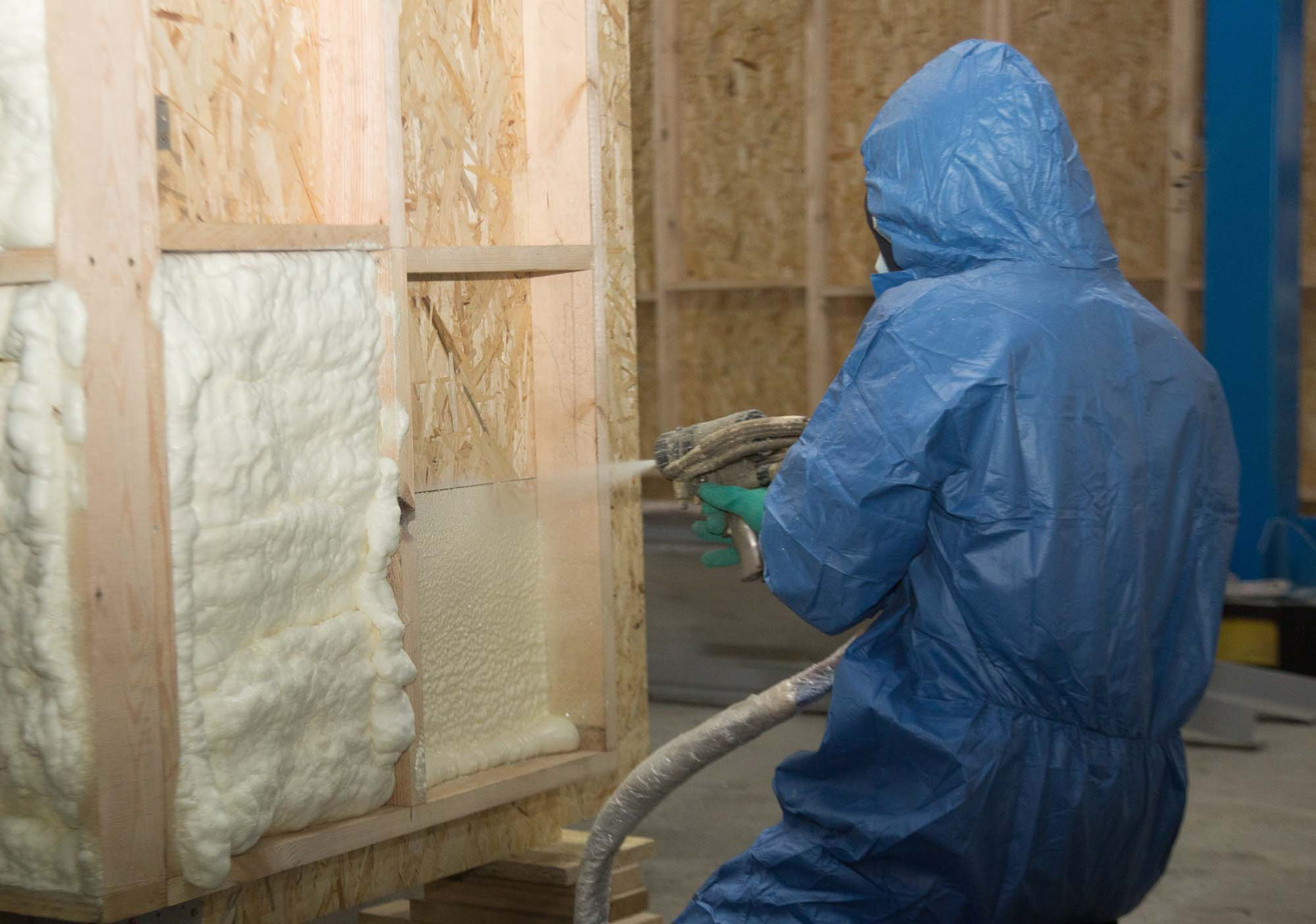Introduction
Homeowners in Lake City, FL, often face extreme heat and humidity, leading to high energy costs. A well-insulated home can help regulate indoor temperatures and lower energy bills. Spray foam insulation is a modern solution that improves energy efficiency by sealing gaps and providing a thermal barrier. This insulation method is gaining popularity due to its durability and performance in Florida’s climate.
Understanding Spray Foam Insulation
Spray foam insulation expands upon application, filling cracks and voids that traditional insulation methods may miss. It comes in two main types:
- Open-cell spray foam: Lightweight and flexible, allowing for air permeability while still providing insulation.
- Closed-cell spray foam: Denser and more rigid, offering higher thermal resistance and moisture control.
Both types contribute to a home’s energy efficiency by reducing heat transfer and preventing air leakage.
How Spray Foam Insulation Improves Energy Efficiency
1. Air Sealing and Temperature Control
One of the most significant benefits of spray foam insulation is its ability to seal air leaks. Even small gaps around windows, doors, and electrical outlets can lead to heat loss in winter and heat gain in summer. By sealing these areas, spray foam prevents conditioned air from escaping, reducing the strain on HVAC systems.
2. Higher R-Value for Better Insulation
The effectiveness of insulation is measured by its R-value, which indicates resistance to heat flow. Closed-cell spray foam has one of the highest R-values among insulation materials, making it highly effective in Lake City’s hot climate. A higher R-value means better thermal resistance, reducing the need for constant heating or cooling.
3. Moisture and Mold Prevention
Florida’s humidity can lead to mold growth and structural damage. Spray foam insulation acts as a moisture barrier, preventing water from seeping into walls and ceilings. This reduces the risk of mold and mildew, improving indoor air quality and protecting the home’s structure.
4. Reduced HVAC Workload and Lower Energy Bills
Since spray foam minimizes air leakage and maintains indoor temperatures more efficiently, HVAC systems don’t have to work as hard to regulate the home’s climate. This leads to lower energy consumption and reduced utility costs.
5. Long-Term Cost Savings
While spray foam insulation has a higher initial cost than traditional options like fiberglass, its long lifespan and energy-saving benefits make it a cost-effective investment. Homeowners in Lake City can see significant savings on energy bills over time, making it a financially sound choice.
Where Spray Foam Insulation Works Best in Homes
Attics and Rooflines
Applying spray foam in the attic helps prevent heat from entering the home, reducing the need for excessive air conditioning. It also protects the roof structure from moisture damage.
Walls and Crawl Spaces
Sealing exterior walls and crawl spaces ensures that conditioned air stays inside. This also helps eliminate drafts and keeps indoor temperatures consistent.
Basements and Garages
Insulating these areas can improve the overall efficiency of a home, preventing unwanted heat transfer and protecting stored items from humidity damage.
A Reliable Solution for Lake City Homes
Homes in Lake City require insulation that can withstand high temperatures and humidity. Spray foam’s ability to seal gaps, resist moisture, and provide superior insulation makes it an excellent choice for homeowners looking to cut energy costs and improve indoor comfort.
For professional installation, R-Factor Spray Foam offers expert services tailored to Florida’s climate. Call (352) 663-5905 or email [email protected] to schedule a consultation and learn how spray foam can benefit your home.
FAQs
1. How much does spray foam insulation cost?
The cost varies based on the area being insulated and the type of foam used. On average, installation costs range between $1.50 and $3.50 per square foot.
2. Is spray foam insulation safe?
Once cured, spray foam is safe and does not release harmful chemicals. Proper ventilation during installation is essential to avoid exposure to fumes.
3. How long does spray foam insulation last?
Spray foam can last for decades without losing its effectiveness, making it a durable insulation option.
4. Can I install spray foam insulation myself?
DIY installation is not recommended due to the specialized equipment and expertise required. Professional installation ensures proper application and safety.
5. Does spray foam insulation help with noise reduction?
Yes, open-cell spray foam has sound-dampening properties that can help reduce outside noise.
6. Can spray foam insulation improve indoor air quality?
Yes, by sealing air leaks and reducing moisture buildup, spray foam helps prevent mold growth and allergens.
7. Will spray foam insulation make my home too airtight?
Proper ventilation is key. A professional installer can balance insulation with necessary airflow to maintain a healthy indoor environment.
8. Is spray foam insulation worth the investment?
Yes, despite its higher initial cost, spray foam pays for itself over time through energy savings and long-term durability.
9. Can spray foam insulation be applied over existing insulation?
It depends on the condition of the existing insulation. In some cases, old insulation may need to be removed before applying spray foam.
10. How long does it take to install spray foam insulation?
Installation time varies based on the size of the area, but most homes can be completed in one to two days.
For more information or to schedule an inspection, contact R-Factor Spray Foam at (352) 663-5905 or email [email protected].


